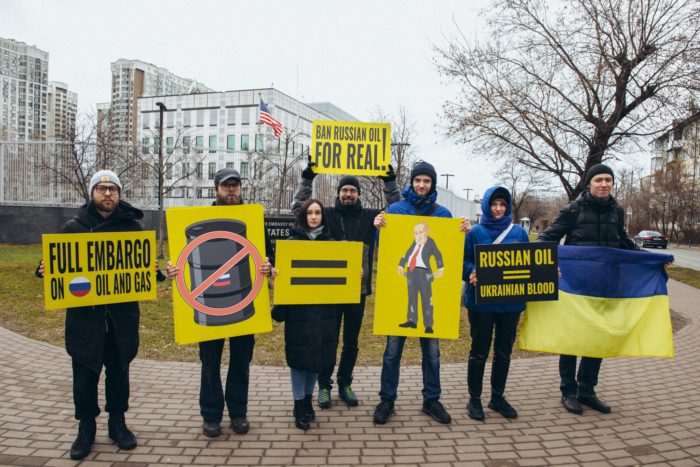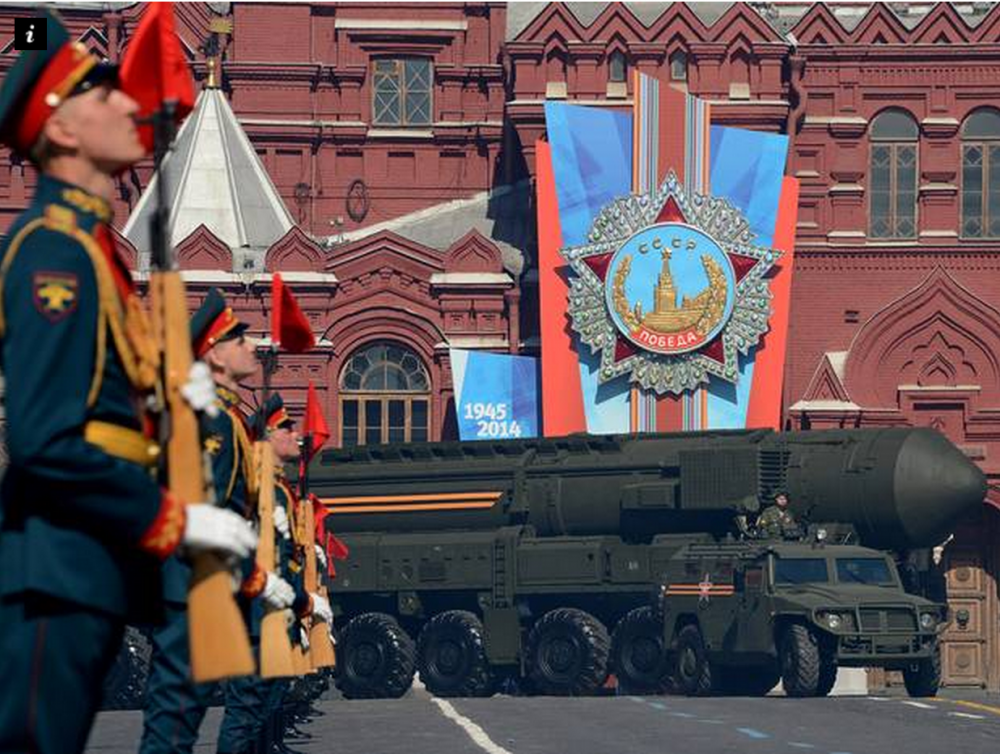In response to the Russian full-scale invasion of Ukraine which started on 24 February, the international community introduced unprecedented sanctions against the Russian Federation aimed at limiting its economic and financial capabilities.
These measures included an embargo on the import of Russian oil by the EU and G7 countries, as well as the establishment of a price сap on Russian oil and oil products. Russia started to lose billions due to sanctions, but the Kremlin quickly found loopholes and ways to circumvent them.
Therefore, the G7 and EU should focus on finding and eliminating loopholes.
As Ukraine marks the tragic two-year anniversary of the full-scale invasion, there is a clear need to ban all loopholes in existing sanctions against Russian fossil fuels to prevent further escalation of Kremlin aggression in Europe outside of Ukraine. More than 290 organisations addressed the G7 and EU leaders with this call.
Sanctioning countries have significantly reduced their reliance on Russian fossil fuels, but more must be done to stop purchasing fuels that finance the Kremlin’s war chest.
Through measures such as the EU oil import ban and G7 price cap, Russia's export earnings from oil have been cut by 14%, costing them EUR 34 billion. However, the oil price cap's impact is far short of what could have been achieved with greater monitoring and enforcement of the policy, paired with a lower price level.
Over the past two years, the EU has shown a steadfast commitment to supporting Ukraine in the common struggle against the aggressor, recognizing Russia’s war as an onslaught on international rules-based order, democracy, and human rights. We welcome the recent decision by the European Council to support Ukraine with EUR 50 billion in aid
.
However, the EU’s recent aid commitment represents 27% of their total fossil fuel imports purchased from Russia since the beginning of their full-scale invasion, estimated at over EUR 185 billion. More needs to be done to support our allies and wean the EU off of the Russian fossil fuel exports that fund the war, including a complete phase-out of Russian pipeline gas.
Tightening sanctions against Russian fossil fuel exports are ever more urgent. Russia’s 2024 federal budget demonstrates a staggering allocation of resources to the military-industrial complex, unprecedented since Soviet times.
A startling shift in budgetary focus, with a third dedicated to military spending, underscores the alarming escalation of aggression.
In 2024, Russia’s “national defense” budget will expand to 10.775 trillion rubles ($110 billion), marking a 70% increase from 2023, more than doubling from 2022, and three times higher than the pre-war 2021 allocation.
The EU and G7 countries are still contributing to this expanding war chest by inadequately enforcing sanctions against Russian oil and gas and leaving loopholes wide open.
There are five specific actions that the G7 and EU can take to solve this problem:
- Fully enforce and lower price caps on Russian crude oil and oil products.
- Prevent Russia from further expanding the shadow fleet of dangerous, practically uninsured, and unaccountable old tankers, operating through illegal and dubious management arrangements and lacking transparency in ownership.
- Close the “refining loophole,” which allows EU and G7 countries to import oil products — mainly diesel, jet fuel, and gasoline — produced from Russian oil at refineries in third countries like India, Türkiye, or UAE.
- Fully ban liquefied natural gas (LNG) imports from Russia and its transshipment in European ports for exports to other countries.
- Take decisive actions to reduce oil and gas consumption and end import dependency to deflate the Russian war economy.
Civil society organizations from across the globe are urging leaders to take these steps.
Since the start of the full-scale invasion in Ukraine on 24 February 2022, Russia has amassed more than $600 billion in profits from fossil fuel exports
.
It is rushing to develop new Siberian and Arctic LNG gas fields. Russia’s ongoing fossil fuels expansion in the Arctic can set a fuse to numerous carbon bombs and pose a dire threat to international efforts on climate change mitigation.
Oil and gas exports pay for Russia’s further militarization, signifying a perilous path towards conflict intensification, escalation outside Ukraine, and threatening the future of democracy and the rule of law.
Yet, if international sanctions on Russia’s fossil fuel industry are maintained and rigorously enforced, the International Energy Agency projects that the Kremlin’s expansion plans would collapse and profits from oil and gas could plummet by 40 to 50% by 2030.
With the two-year anniversary of Russia's war on Ukraine, this is the time for more sanctions and action from the EU and G7 nations. Ending Russia's war of aggression is necessary for stability and safety across the entire world, and political leaders need to act now to make this happen.
Related:
- Russia outspends West 2:1 in Ukraine war
- A call from Kyiv to Davos: curb Russian oil and gas exports for peace in Ukraine and beyond
- Russia left out in the cold as US sanctions torpedo LNG project
- LNG frenzy boosts Russian gas in Europe, not energy security – opinion




